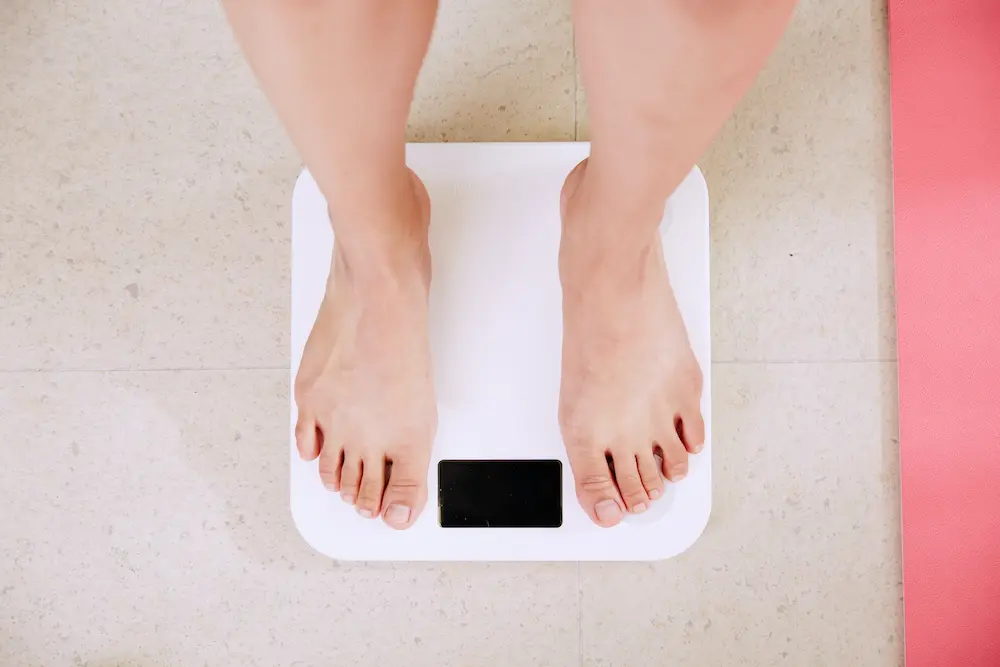Does Throwing Up Really Get Rid of Calories? Find Out Here!
When it comes to weight loss, people often look for quick and easy ways to shed those extra pounds. One common method that some people turn to is throwing up after eating, thinking that it will get rid of the calories they consumed. But does throwing up actually get rid of calories?
The answer is not as straightforward as you might think. While it’s true that throwing up can eliminate some of the calories you consumed, it’s not an effective weight loss method. In fact, it can be dangerous and lead to serious health problems, such as dehydration, electrolyte imbalances, and damage to the esophagus and teeth.
So, why do some people believe that throwing up can help them lose weight? And how many calories can you actually get rid of by throwing up? In this article, I will explore the science behind throwing up and weight loss, and provide you with accurate information on whether or not throwing up can get rid of calories.
Understanding Calorie Intake and Expenditure
As someone who has struggled with weight loss, I know how confusing it can be to understand calorie intake and expenditure. It’s easy to get caught up in the latest fad diets or quick weight loss schemes, but the truth is that weight loss comes down to basic math: calories in versus calories out.
Calories are a measure of energy, and we get them from the food we eat. When we eat more calories than our body needs, the excess calories are stored as fat. On the other hand, when we eat fewer calories than our body needs, our body starts to burn stored fat for energy, leading to weight loss.
To lose weight, we need to create a calorie deficit, which means we need to burn more calories than we consume. The amount of calories we burn each day is called our total daily energy expenditure (TDEE), which is made up of three components:
- Basal metabolic rate (BMR): the number of calories our body burns at rest to maintain basic bodily functions like breathing and circulation.
- Thermic effect of food (TEF): the number of calories our body burns digesting and processing the food we eat.
- Physical activity: the number of calories we burn through exercise and daily activities.
To create a calorie deficit, we need to either eat fewer calories, burn more calories through exercise, or a combination of both. It’s important to note that creating too large of a calorie deficit can be harmful to our health and slow down our metabolism, making it harder to lose weight in the long run.
In conclusion, understanding calorie intake and expenditure is essential for weight loss. By creating a calorie deficit through a combination of healthy eating and exercise, we can achieve sustainable weight loss and improve our overall health.
The Science Behind Vomiting and Calorie Absorption
As someone who has struggled with weight loss, I’ve heard a lot of conflicting information about whether or not throwing up can get rid of calories. So, I decided to do some research and get to the bottom of it.
Digestive Process
When you eat food, it goes through a complex digestive process in your body. First, it enters the stomach, where it is broken down by stomach acid and digestive enzymes. From there, it moves into the small intestine, where nutrients are absorbed into the bloodstream.
If you throw up shortly after eating, the food will not have had enough time to be fully digested and absorbed. This means that some of the calories in the food may be eliminated through vomiting. However, it’s important to note that not all of the calories will be eliminated, and vomiting should never be used as a weight loss method.
Absorption Timing
The timing of absorption also plays a role in whether or not throwing up can get rid of calories. Research has shown that the longer food stays in the stomach, the more calories are absorbed. So, if you eat a high-calorie meal and then immediately throw up, you may eliminate some of the calories, but not all of them.
Additionally, the amount of calories absorbed varies from person to person. Factors such as weight, diet, and overall health can all impact how many calories are absorbed.
In conclusion, vomiting may eliminate some calories from a meal, but it should never be used as a weight loss method. The best way to lose weight is through a healthy diet and regular exercise.
Effects of Forced Vomiting
Forced vomiting, also known as self-induced vomiting, is a harmful behavior that can have serious consequences on both physical and mental health. Here are some of the effects of forced vomiting:
Physical Health Risks
Forced vomiting can lead to a range of physical health risks, including:
- Dehydration: Frequent vomiting can cause dehydration, which can lead to dry skin, dry mouth, and fatigue.
- Electrolyte imbalances: Vomiting can cause an imbalance in electrolytes, which can lead to muscle weakness, seizures, and heart problems.
- Gastrointestinal problems: Regular induced vomiting can cause damage to the esophagus, stomach, and intestines. It can also cause acid reflux, bloating, and constipation.
- Nutritional deficiencies: Vomiting can prevent the body from absorbing essential nutrients, which can lead to malnutrition, anemia, and other health problems.
Mental Health Risks
Forced vomiting can also have a range of mental health risks, including:
- Anxiety and depression: The shame and guilt associated with bulimia can lead to anxiety and depression.
- Substance abuse: People with bulimia may turn to drugs or alcohol to cope with their emotions.
- Social isolation: People with bulimia may avoid social situations because of their shame and guilt.
- Suicidal thoughts: In severe cases, bulimia can lead to suicidal thoughts and behaviors.
It is important to seek professional help if you are struggling with forced vomiting or any other eating disorder. A mental health professional can help you develop a treatment plan that addresses both the physical and mental health effects of bulimia.
Healthy Alternatives to Manage Calorie Intake
When it comes to managing calorie intake, throwing up is not a healthy or sustainable solution. Instead, there are several healthy alternatives that can help you maintain a balanced diet and regular exercise routine.
Balanced Diet
Eating a balanced diet is key to managing calorie intake. This means incorporating a variety of nutrient-dense foods into your meals, including fruits, vegetables, whole grains, lean proteins, and healthy fats.
One helpful tool for managing calorie intake is tracking your food and beverage consumption. There are several apps and websites available that make it easy to log your meals and snacks, as well as track your calorie intake and nutrient balance.
Another tip for maintaining a balanced diet is to practice mindful eating. This means paying attention to your hunger and fullness cues, eating slowly and without distractions, and savoring your food.
Regular Exercise
Regular exercise is another important component of managing calorie intake. Exercise not only burns calories, but also helps to build muscle and boost metabolism.
To get the most out of your exercise routine, aim for a combination of cardiovascular exercise and strength training. Cardiovascular exercise, such as running or cycling, helps to burn calories and improve heart health, while strength training helps to build muscle and increase metabolism.
It’s also important to find activities that you enjoy and that fit into your lifestyle. This could include joining a gym, taking a dance class, or going for a daily walk.
Overall, managing calorie intake is about making healthy choices and finding a sustainable routine that works for you. By focusing on a balanced diet and regular exercise, you can achieve your weight loss or maintenance goals in a healthy and sustainable way.
Conclusion
In conclusion, throwing up is not a healthy or effective way to get rid of calories. While it is true that some calories may be lost through vomiting, the amount is highly variable and not significant enough to make a difference in weight loss. Furthermore, throwing up can lead to serious health consequences, including damage to the esophagus, teeth, and gums, as well as electrolyte imbalances and dehydration.
It is important to remember that weight loss should be achieved through healthy lifestyle changes, such as a balanced diet and regular exercise. If you are struggling with disordered eating habits or have concerns about your weight, it is important to seek help from a healthcare professional.
Remember that every body is different, and there is no one-size-fits-all solution to weight loss or healthy living. Instead of focusing on quick fixes or fad diets, prioritize your overall health and well-being. With patience, persistence, and self-care, you can achieve your goals in a safe and sustainable way.







